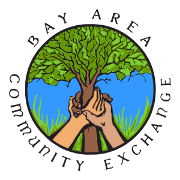The New Economy Huddle
Come join us for a public presentation and brainstorm for future events to usher in The New Economy. This Friday’s Huddle is being co-presented by BACE and EBBX–East Bay Barter Exchange. It will be an open format inviting input from …
